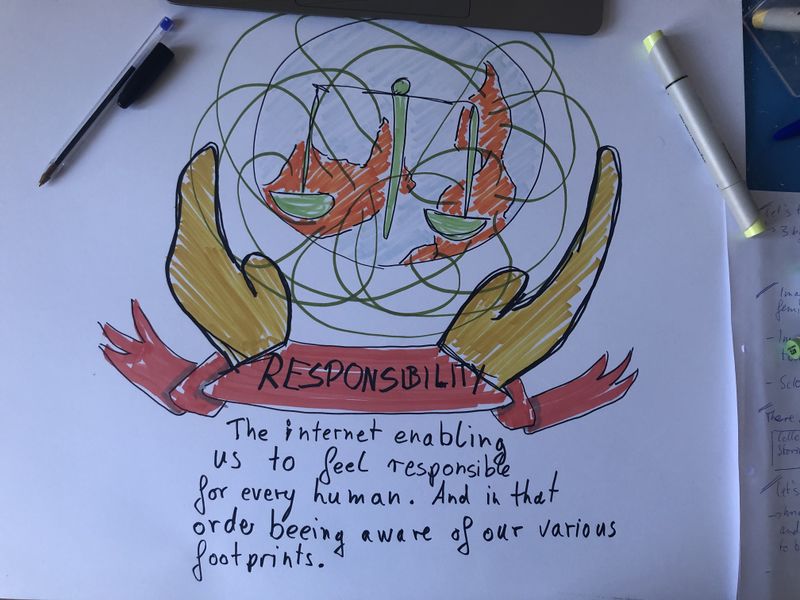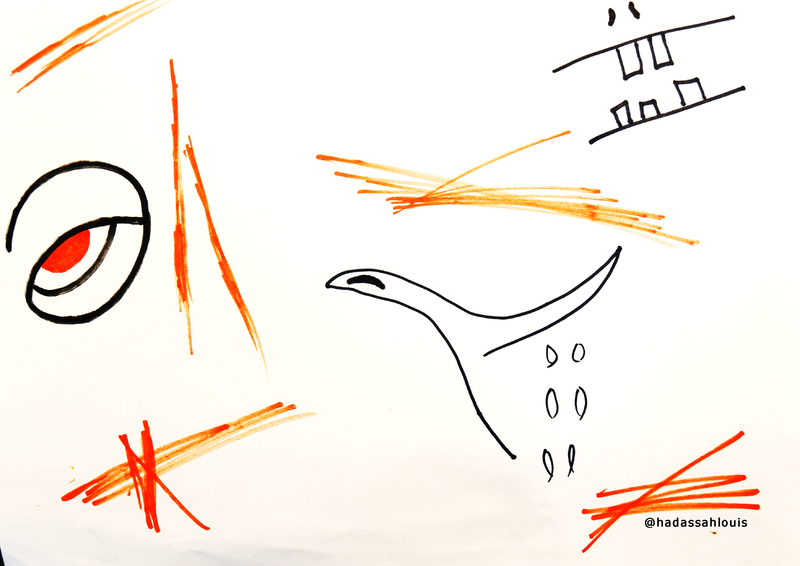Constructing Feminist Tech through Fiction

Slide deck (PDF hosted on CryptPad): https://cryptpad.fr/file/#/2/file/GotlkyapH1BLL40n0lweXmFm/
Who: Dalia Othman, Katrin Fritsch & Helene Von Schwichow
Date: Thursday, April 2
Time: 11:00am EST / 3:00pm UTC+0
What: Technologies are inherently plagued with biases, inequality and violence due to the structures in place that allow for these technologies to thrive. Many people have tackled these problems - but how can we fight these issues using a different approach?
Imagination can function as a powerful feminist and collective tool for social change. Building on that notion, this session where we use fiction to ‘fix tech’. Working with the Feminist Principles of the Internet, we brainstorm collectively about particular issues that participants feel are critical to them at the moment. Once we’ve highlighted some issues we give participants the opportunity to write, draw, or record the future of tech free from patriarchy, capitalism and colonialism. The session will enable participants to unleash their imagination and create their own comic hero that fights ‘fake news’, or write a Haiku on the ultimate AI to defeat all biases.
Bios:
Dalia Othman is the Project Manager of Jeem.me an Arabic website focusing on Gender, Sex and Sexuality from the Goethe-Institut. Prior to joining Goethe Institut she was the Gender and Tech project coordinator at Tactical Tech Collective and a Research Fellow at Harvard's Berkman Klein Center for Internet and Society. For the past few years, Othman has been researching topics such as online civic engagement in the Arab World, online harassment and building a feminist internet.
Helene von Schwichow is a co-founder of the think tank MOTIF Institute for Digital Culture. She holds a master’s degree in Communication in Social and Economic Contexts and has previously worked at the Alexander von Humboldt Institute for Internet & Society and the Berlin University of the Arts. Her current research interest is gender effects in the platform economy.
Katrin Fritsch is a data and society researcher and writer. She is co-founder of MOTIF Institute for Digital Culture, an independent think tank that operates at the intersection of technology and society. Throughout her work, Katrin advocates for sustainable tech and feminist futures.
>> Check notes out notes from other sessions here
.
Notes
Imagination and narration are powerful feminist and collective tools for social change.
"Feminist internet works towards empowering more women aand queer persons in all our diversities to fully enjoy our rights, engage in pleasure and play, and dismantle patriarchy. This integrates our different realities, contexts and specificities, including age, disabilities, sexualities, gender identifies, and expressions, socioc-economic locations, political and religious believes, ethnic origins, and racial markers. The following key principles are critical towards realizing a feminist internet." From APC principles fo a feminist internet.
How do we create an internet that protects the most vulnerable peoples and groups in our societies
Through a feminist internet we can create spaces that resist patriarchy. and facilitate new forms of engagement, governance, etc. We can also improve access, movements and participation, expression, agency, and economy. Alternative economies which build on the commons, the cooperations, and the commons. Also focused on sustainability, open source and user security.
When participants were asked what is the internet, they responded:
- Inter-connected, which can be good or terrible.
- Full of possibilities
- Community
- Wild
- Very fun
- us
- international
- Massive
- Dumpster fire
- Innformation
- Powerful
- Fun and pleasure
- Constructing Feminist Tech through Fiction
- Another home we can go to
When asked why the internet sucks:
- inadequate digital education
- insufficient promotion of critical thinking
- It gives LOSERS the confidence to be hateful and angry, and hurt others
- Shows how violent, abuse and power imbalance exists in our society, especially towards vulnerable groups like women, people of color eetc
- It has broken our connectness as humans
- bullying and trolling
- gender bias in content
- self cencorship due to violence and all other mentioned problems
- gender and generational gap especially in rural areas
- lack of access in rural areas+++
- censorship of sexual/sexuality-related content
- the feelings of shame that keep people from being comfortable with the internet - i.e. shame about not knowing how to stay safe, knowing digital security, knowing what they “should” be doing re: passwords, etc.
- how the ideas of who should be comfortable with tech (“tech bros”, male hacker stereotypes) that keep people from feeling safe to explore, learn, and mess up
- Online harassment
- Sillicon Valley (masculine) culture about provinding solutions that are mean to be universal (but they aren’t)
- More here: https://pad.riseup.net/p/FeministNet-keep
Speakers lead the participants to create/draw/paint/write a feminist science fiction story of the internet or of technology.
Sample drawings below. We'd love to add more creative outputs! Please contact the IFF team to include and share your work:

